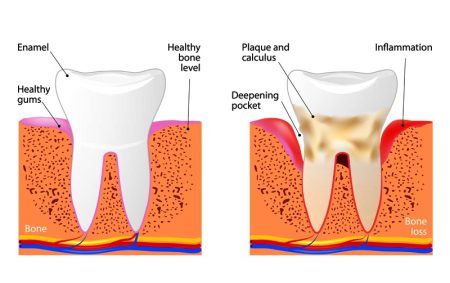
How to live well with Crohn’s disease?
Living with Crohn’s disease could mean that the patient has a proper understanding of the disease, its symptoms, flare-ups, treatment plans, and many more things that can help to manage the disease in an efficient way.
Medications can help control the symptoms of Crohn’s disease, but effective treatment is far beyond what the doctor prescribes. To truly live well, one needs to understand every aspect of life in order to be healthy and happy.
Here are some ways that can help a person to live better with Crohn’s disease.
Maintain a healthy diet
Certain modifications in the eating habits can work wonders for a patient of Crohn’s disease. Most people find that they feel better if they:
- Eat small meals more frequently (five to six times) throughout the day rather than three large meals.
- Avoid greasy or fatty foods, especially fried dishes.
- Cut down on milk and dairy products because they are difficult to digest.
- Limit high-fiber foods and those that are more difficult to digest, such as popcorn, seeds, and nuts.
Hire a good dietitian or nutritionist
Certain foods or food groups can exacerbate the symptoms during Chrohn’s disease flares. Eliminating the entire food groups from the diet is not a good idea because it increases the risk of malnutrition. Therefore, a nutritionist or a dietitian can help create a nutritious meal plan that avoids the foods that bother you and still the quantity of nutrients is not compromised.
More: Crohn’s Disease Diet: What food can you eat and not eat with Crohn’s disease?
Quit smoking
Smoking is injurious to health in many ways and also makes Crohn’s disease much worse. If people with Crohn’s disease smoke, it may cause more flares and emergency surgeries may be more needed as compared to non-smokers.
Smokers are also always at high risk of developing the Crohn’s disease. Quitting smoking is the first and the best thing a patient of Crohn’s disease can do.
Drink in moderation
Just like smoking, drinking alcohol is also bad for Crohn’s patients. Alcohol can irritate the lining of the intestinal tract and flare up the symptoms. Therefore, it’s important to limit the quantity.
More: Crohn’s Flare-Up, Crohn’s Disease Pain: What It Feels Like To Have Crohn’s?
Limit caffeine
Caffeine is known to aggravate some Crohn’s disease symptoms, including diarrhea. Avoiding foods that contain caffeine can help maintain a lifestyle with the disease. Caffeine is found in coffee, tea, chocolate, and some sodas.
Exercise regularly
Exercise is helpful to the body and also helps to manage many diseases. Likewise, aerobic activity and resistance training can help manage Crohn’s disease. Exercise can benefit the patient of Crohn’s disease in following ways:
- Helps the digestive tract to work more efficiently
- Helps to reduce stress due to the release of endorphins (feel-good hormones)
- Helps prevent osteoporosis (a disease that weakens and thins the bones), a common complication of Crohn’s disease.
Practice relaxation techniques
Stress is not a direct cause of Crohn’s disease, but it can aggravate the symptoms and even make them worse. It is also said that stress also plays a role in how people with Crohn’s disease perceive their illness and quality of life. Following things can be done:
- Try slow breathing
- Yoga
- Tai chi
- Meditation
- Anything that can help to relax such as reading a book in a quiet place, listening to favorite music, or spending time with friends and family
Sleep well
Improper sleep leads to tiredness which again leads to stress. And stress worsens the symptoms. Proper and enough sleep is essential.
Stick to a routine with a set time to going to bed and waking up. Also avoid using mobiles, laptops and other screen gadgets because they can cause sleep problems.
Seek out support from support groups
Online and face-to-face support groups are helpful in terms of motivation and outlook. Talking to people who are going through the same circumstances can give confidence and security. These support groups are gaining popularity because of their importance and support they provide to the patient emotionally and psychologically.
Always communicate
Hiding the disease from others can create a feeling of insecurity and fear in the patient. On the other hand, telling people about the disease can boost up the confidence. But it should depend totally on the patient whom to tell and when.
Stick to your treatment plan
It is a common tendency to skip the medications when little improvement is seen. However, in case of Crohn’s disease, it may increase the risk of flare. Taking medications as prescribed by the doctor is as important as eating healthy food.
Stay on track with your tests
Ask the doctor how often the diagnostic tests and/or procedures should be done. This may help to identify any treatment side effects or signs of Crohn’s disease progression.
Avoid over-the-counter anti-inflammatory drugs
Generally, people take some over-the-counter medicines but in case of Crohn’s disease, this habit is bad. People mostly have arthritis along with Crohn’s disease and they take certain pain relievers. Such pain relievers can cause intestinal ulcers which can again worsen the condition. Always talk to the doctor before taking any such step.
Be careful about antibiotics
Unless the doctor has prescribed the antibiotics, always avoid these medicines as they can cause the symptoms to flare. The key here is that before taking medicines, doctor’s approval is always necessary.
Don’t ignore bone loss
One of the major complications of Crohn’s disease is developing osteoporosis (a condition that makes the bones weak and fragile) which increases the risk of fractures.
Even some treatments for Crohn’s disease can also cause osteoporosis. Therefore, taking enough calcium, vitamin D and another nutrient is essential. Always remind the doctor or nutritionist about such conditions.
Get screened for colon cancer
Crohn’s disease increases the risk of developing colon cancer, so it is always beneficial and important to have regular colonoscopies to check for any signs of the disease. The doctor may tell about the frequency of the screening.
More: What Are The Symptoms Of Colorectal Cancer?
Get immunized
Always get yourself immunized with certain vaccination such as those against the flu, hepatitis A and B, pneumonia, and human papilloma virus.
Check in with your doctor regularly
Having frequent visits to the doctor may help keep a check on the disease and its condition. Whenever there is a doubt, never hesitate to meet the doctor. In addition, never change a medication dosage, and scheduling on your own. This could have dangerous results.
Get new symptoms evaluated quickly
There are some rare symptoms of Crohn’s disease such as abscesses, ulcers, anal fistulas, and fissures. If such things are experienced, immediately talk to the doctor and take prescription medicines that will help to heal them.






